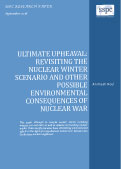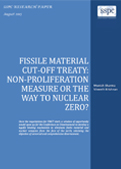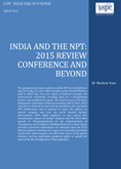NPT@50: Global Nuclear Order and Challenges
This year marks the golden jubilee of the Treaty on the Non-Proliferation of Nuclear Weapons (NPT) and the silver jubilee of its indefinite extension. Legally binding in nature, this Treaty is often regarded as the bedrock of the global nuclear non-proliferation regime. Apart from the non-proliferation efforts, the Treaty advocates disarmament and peaceful use of nuclear energy. It recognizes five nuclear states (N5 states) namely the United States, Russia, the United Kingdom, France, and China.







